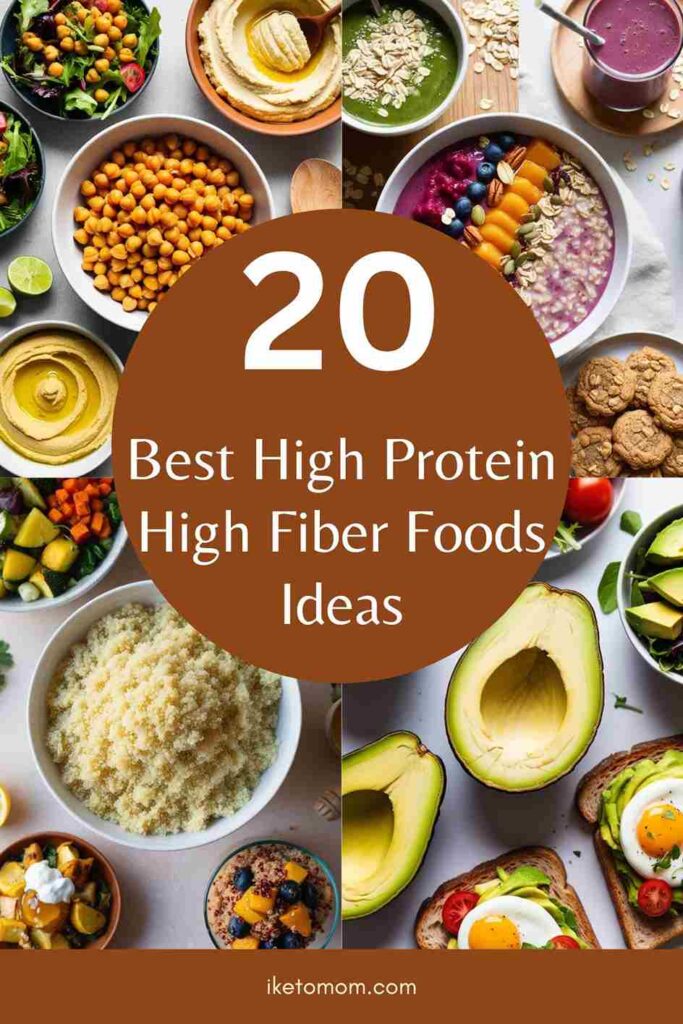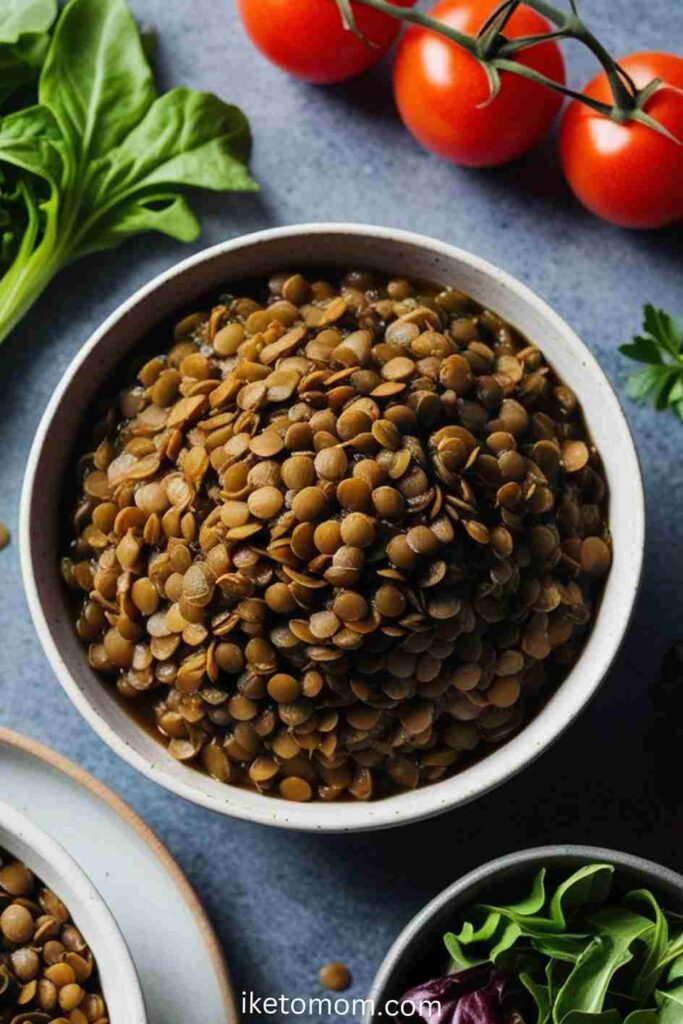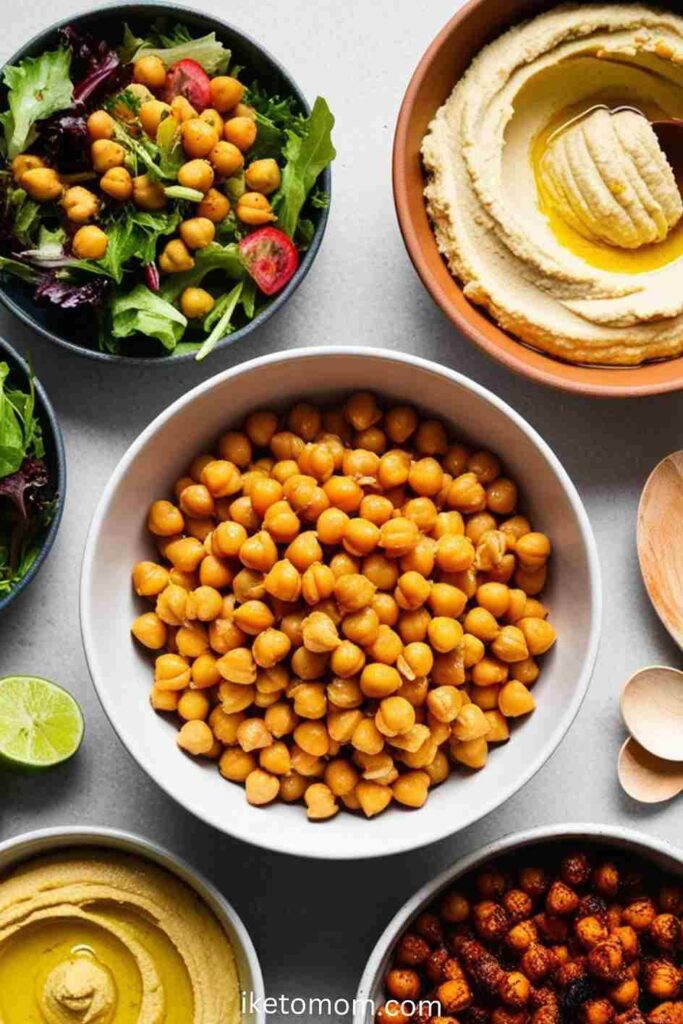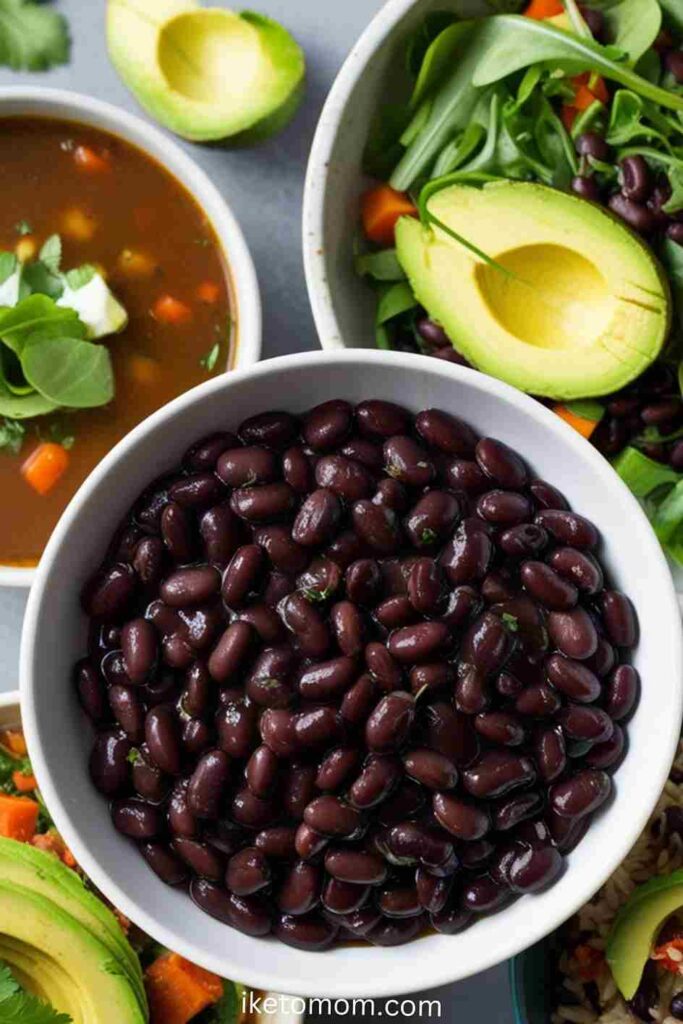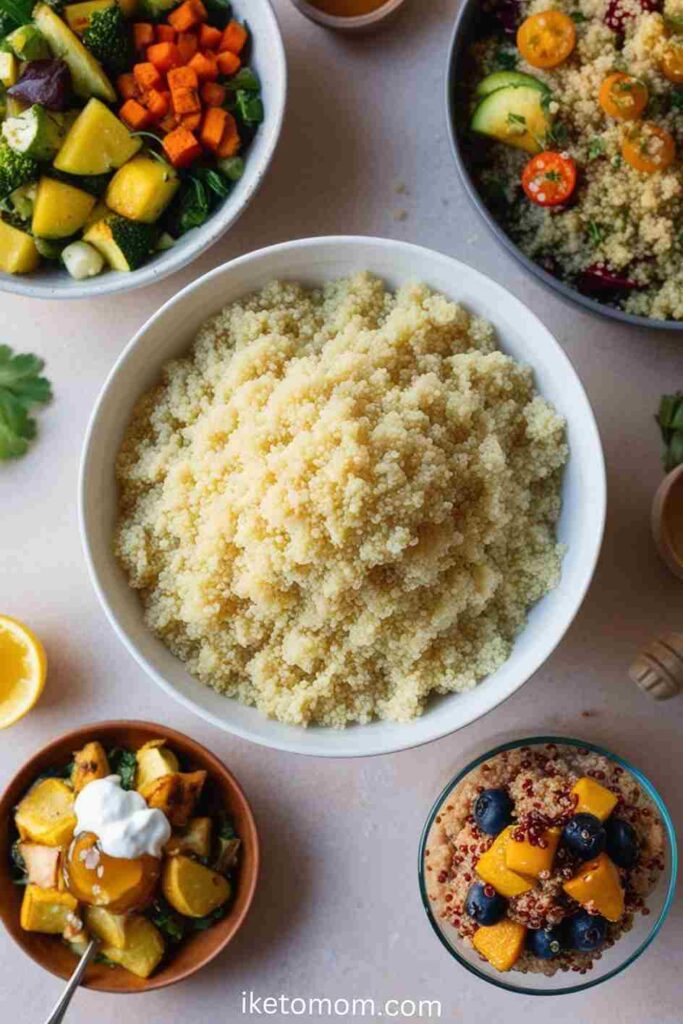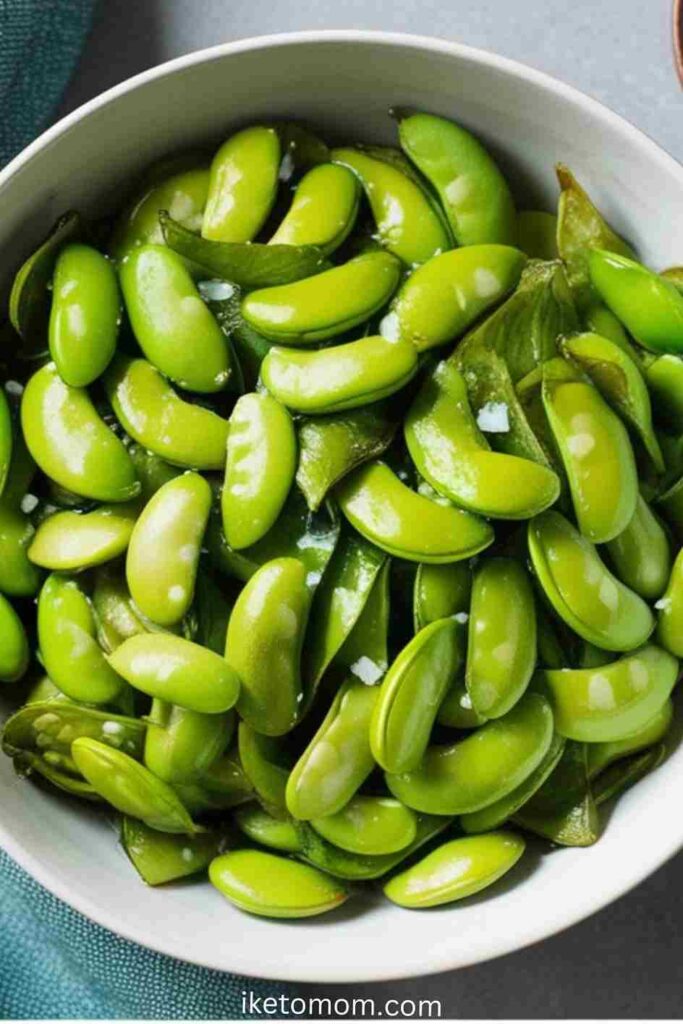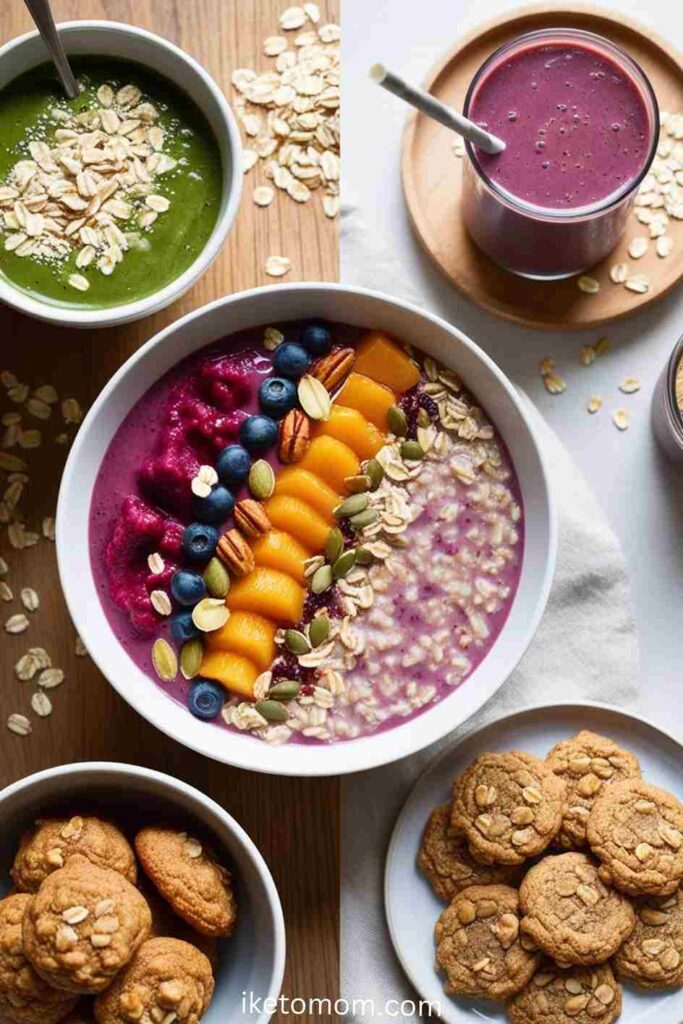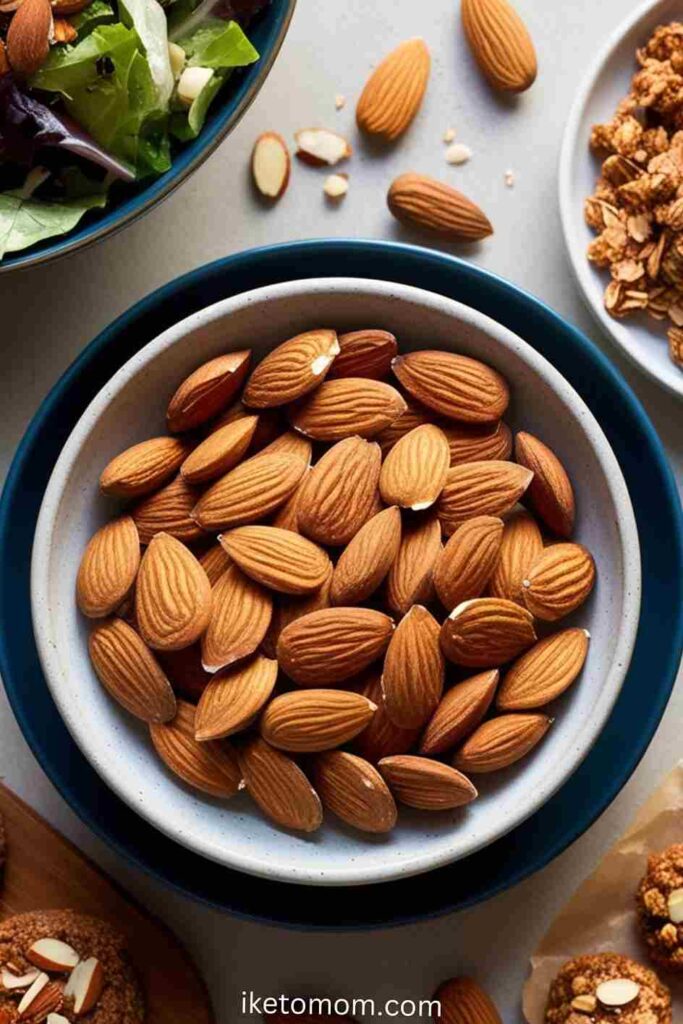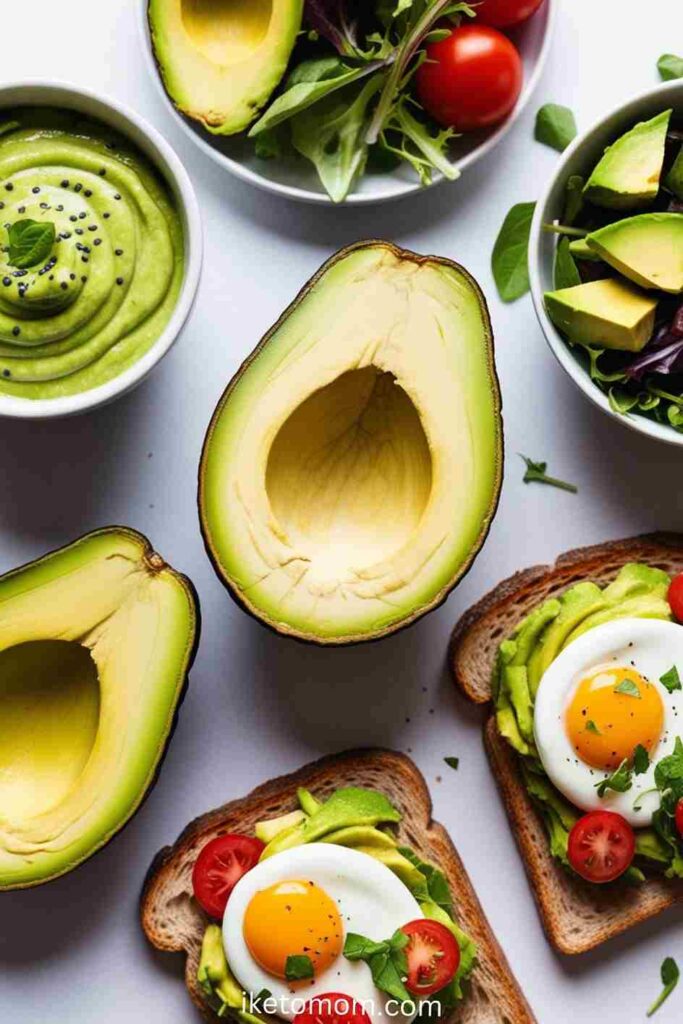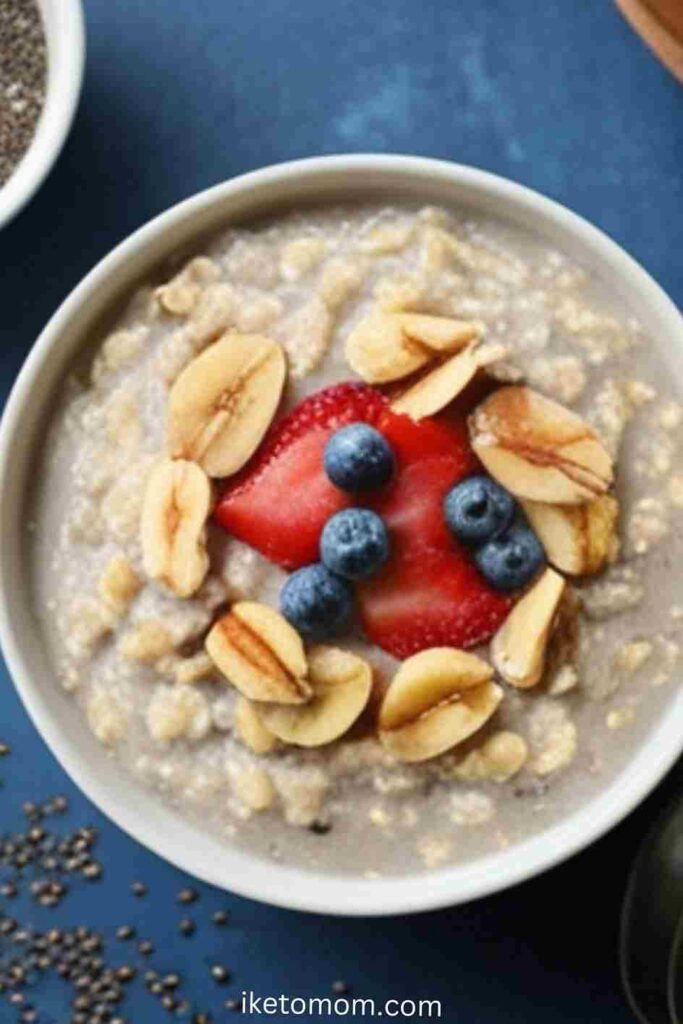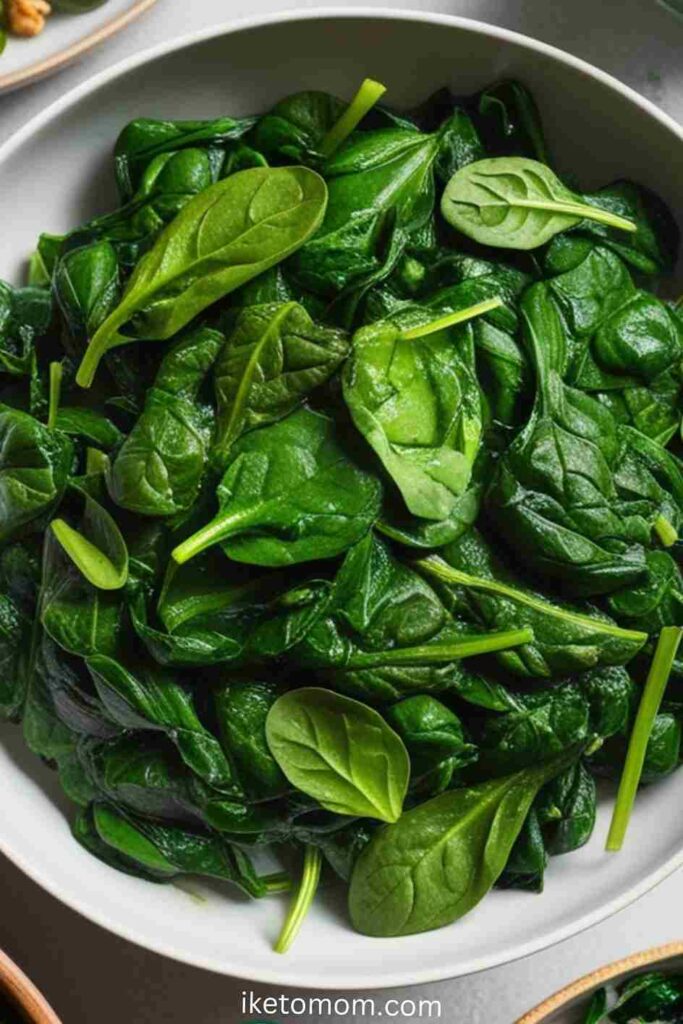High Protein High Fiber Foods Ideas : Protein and fiber are two essential nutrients that play a vital role in maintaining overall health and well-being. Protein is crucial for building and repairing tissues, producing enzymes and hormones, and supporting immune function. It is particularly important for muscle repair and growth, making it a key nutrient for active individuals and those aiming to maintain or build muscle mass. Fiber, on the other hand, is essential for digestive health, as it helps regulate bowel movements, prevent constipation, and promote a healthy gut microbiome. Additionally, fiber aids in controlling blood sugar levels and cholesterol, which contributes to heart health.
When combined, high-protein and high-fiber foods offer a powerful duo that supports various aspects of health. These foods are especially beneficial for weight management, as both protein and fiber help promote satiety, reducing hunger and the tendency to overeat. The combination of these nutrients also supports healthy digestion, improves metabolic function, and ensures the body gets sustained energy throughout the day. By incorporating high-protein and high-fiber foods into your diet, you can achieve a balanced, nutrient-rich approach to eating that nourishes the body from the inside out, helping you feel fuller for longer while supporting muscle growth and digestive health.
High Protein High Fiber Foods Ideas
1. Lentils
Lentils are a powerhouse food, offering an impressive combination of high protein and fiber, making them an excellent choice for anyone looking to boost their nutrition. They are particularly beneficial for vegetarians and vegans, as they provide a plant-based source of protein and essential nutrients that might otherwise be found in animal products.
Nutritional Information:
- Protein: 18g per cup (cooked)
- Fiber: 15g per cup (cooked)
- Other benefits: Lentils are packed with iron, folate, and potassium. Iron is essential for oxygen transport in the blood, while folate supports cellular function and DNA synthesis, and potassium helps maintain proper muscle and nerve function.
Why it’s a great choice for vegetarians and vegans:
Lentils are an ideal plant-based protein source, offering a significant amount of protein in every serving. They also contain a variety of important micronutrients, making them a staple for those following plant-based diets. Lentils are versatile and easy to incorporate into meals—whether in soups, salads, or veggie burgers—while also being budget-friendly and accessible. Additionally, the high fiber content helps with digestion, promotes satiety, and supports overall gut health.
By including lentils in your diet, you not only enjoy a rich nutritional profile but also benefit from improved heart health, stable blood sugar levels, and enhanced weight management.
2. Chickpeas
Chickpeas, also known as garbanzo beans, are another fantastic source of both protein and fiber, making them an excellent addition to any diet. With their mild flavor and versatile texture, chickpeas are easy to incorporate into a variety of dishes, whether you’re looking for a hearty snack or a filling meal.
Nutritional Information:
- Protein: 15g per cup (cooked)
- Fiber: 12g per cup (cooked)
- Other benefits: Chickpeas are rich in antioxidants, which help protect the body from oxidative stress. They are also known to support heart health by lowering cholesterol and maintaining healthy blood pressure levels.
Ways to incorporate into meals: Chickpeas are incredibly versatile and can be used in numerous ways. Here are a few ideas for incorporating them into your meals:
- Salads: Add roasted or plain chickpeas to salads for extra crunch and nutrition.
- Hummus: Blend cooked chickpeas with olive oil, tahini, lemon juice, and garlic to make a delicious, creamy hummus.
- Curries & Stews: Chickpeas absorb flavors well, making them an ideal addition to vegetable curries and stews.
- Roasted Chickpeas: Roast chickpeas in the oven with your favorite spices for a healthy, crunchy snack.
- Wraps & Bowls: Toss chickpeas into grain bowls or wraps with vegetables, rice, and a flavorful dressing.
Chickpeas not only offer a great protein and fiber boost but also promote better digestion, heart health, and sustained energy. Whether you’re preparing a savory dish or a healthy snack, chickpeas are a nutritious and delicious option.
3. Black Beans
Black beans are a nutritious and versatile legume that packs a powerful combination of protein and fiber, making them an excellent choice for anyone looking to boost their health. Known for their deep color and hearty texture, black beans are an easy and delicious addition to a variety of meals.
Nutritional Information:
- Protein: 15g per cup (cooked)
- Fiber: 15g per cup (cooked)
- Other benefits: Black beans are beneficial for digestive health due to their high fiber content, which promotes regular bowel movements and supports gut health. Additionally, their low glycemic index helps stabilize blood sugar levels, making them a great food choice for those managing diabetes or looking for sustained energy.
Tips for adding black beans to meals:
- Soups: Add black beans to vegetable or chicken-based soups for a boost of protein and fiber. They pair well with both spicy and mild flavors.
- Salads: Toss black beans into salads for extra heartiness. Their rich flavor complements greens, corn, and avocado perfectly.
- Bowls: Create a nutrient-dense grain bowl with black beans, rice, vegetables, and a protein-rich dressing or salsa. Black beans work well with quinoa or couscous as the base.
- Tacos and Burritos: Use black beans as a filling in tacos or burritos for a protein-packed, satisfying meal.
Incorporating black beans into your diet not only helps support digestive health but also promotes heart health and provides lasting energy throughout the day. Whether in soups, salads, or wraps, black beans are a nutritious and delicious choice.
4. Quinoa
Quinoa, often referred to as a “superfood,” is a nutrient-dense grain that offers a balanced combination of protein and fiber. As one of the few plant-based sources of complete protein, quinoa is particularly valuable for vegetarians and vegans, providing all nine essential amino acids.
Nutritional Information:
- Protein: 8g per cup (cooked)
- Fiber: 5g per cup (cooked)
- Other benefits: Quinoa is a complete protein, meaning it contains all nine essential amino acids that the body cannot produce on its own. This makes it an excellent choice for muscle repair, immune function, and overall health. It’s also rich in magnesium, iron, and antioxidants.
Versatile uses in both sweet and savory dishes: Quinoa’s mild, nutty flavor and fluffy texture make it a versatile addition to a wide range of dishes, both savory and sweet. Here are some ideas for incorporating quinoa into your meals:
- Salads: Use quinoa as a base for salads, mixing it with vegetables, beans, nuts, and a tangy dressing for a satisfying and nutritious dish.
- Bowls: Create grain bowls with quinoa, topped with protein-rich ingredients like chickpeas or tofu, along with fresh veggies and sauces.
- Breakfast: Use quinoa as a base for a breakfast porridge, adding fruits, nuts, and honey for a sweet and filling start to your day.
- Side dish: Serve quinoa as a healthy alternative to rice or couscous, pairing it with roasted vegetables, grilled chicken, or fish.
Incorporating quinoa into your meals provides a high-quality protein source, boosts fiber intake, and supports overall health. Its versatility makes it a great addition to both everyday meals and special occasions.
5. Edamame
Edamame, young soybeans harvested before they fully mature, are a nutrient-packed snack that’s both delicious and nutritious. Known for their high protein and fiber content, edamame is a great option for anyone looking to enhance their diet with plant-based foods.
Nutritional Information:
- Protein: 17g per cup (cooked)
- Fiber: 8g per cup (cooked)
- Other benefits: Edamame is a rich source of vitamins and minerals, including vitamin K, folate, and iron. It’s also known for promoting heart health by helping lower cholesterol and improve circulation.
Ways to enjoy edamame:
Edamame is incredibly versatile and can be enjoyed in a variety of ways:
- Snack: Steamed edamame beans sprinkled with sea salt make for a quick and healthy snack.
- Stir-fries: Add edamame to stir-fries with your favorite vegetables and protein for an extra boost of nutrition.
- Salads: Toss edamame into salads for added protein and texture.
- Soups and Bowls: Use edamame as a topping for grain bowls or soups to enhance flavor and nutritional value.
Edamame offers a healthy, high-protein alternative to more traditional snacks and meals, providing long-lasting energy and supporting heart health. Whether you eat them on their own or incorporate them into dishes, they make a satisfying and nutritious choice.
6. Oats
Oats are a nutritious whole grain that can be easily incorporated into your daily diet. Known for their versatility and health benefits, oats provide a satisfying combination of protein and fiber, making them an excellent choice for a balanced diet. They are particularly beneficial for heart health and digestive wellness.
Nutritional Information:
- Protein: 6g per cup (cooked)
- Fiber: 4g per cup (cooked)
- Other benefits: Oats are high in soluble fiber, specifically beta-glucan, which helps lower cholesterol levels, support healthy blood sugar, and improve overall heart health.
Easy ways to incorporate oats:
- Breakfast: Start your day with a warm bowl of oatmeal topped with fruits, nuts, and seeds. It’s an easy and heart-healthy breakfast option.
- Smoothies: Blend oats into smoothies for added texture and nutrition. It boosts the fiber content and makes the smoothie more filling.
- Baked Goods: Add oats to cookies, muffins, and granola bars for an extra protein and fiber boost. They add a chewy texture and natural sweetness to your baked treats.
Oats are not only nutritious but also versatile. Whether you’re enjoying them in the morning or using them in other meals, they provide numerous health benefits, especially for lowering cholesterol and supporting a healthy digestive system.
7. Almonds
Almonds are a nutritious and versatile nut that offer a great balance of protein, fiber, and healthy fats. Known for their crunchy texture and slightly sweet flavor, almonds are an easy addition to a variety of meals and snacks.
Nutritional Information:
- Protein: 6g per ounce (28g)
- Fiber: 3.5g per ounce (28g)
- Other benefits: Almonds are packed with healthy monounsaturated fats, antioxidants, and vitamin E, which help protect the body from oxidative stress, support heart health, and promote glowing skin.
Ways to incorporate almonds into meals:
- Snacking: Enjoy almonds as a quick, satisfying snack on their own or paired with fruits like apples or berries for added nutrients.
- Salads: Toss chopped almonds into salads for a crunchy texture and extra protein.
- Baked Goods: Add almonds to muffins, cakes, granola, or cookies for a nutty flavor and a boost of nutrients.
Almonds not only provide essential nutrients like protein and fiber but also support heart health, help with weight management, and offer long-lasting energy. Whether as a snack or a key ingredient in dishes, almonds are a tasty and nutritious option.
8. Avocados
Avocados are a nutrient-dense fruit known for their creamy texture and mild flavor. They provide a great balance of protein, fiber, and healthy fats, making them an excellent addition to a variety of meals. Beyond their taste, avocados are packed with essential nutrients that support overall health.
Nutritional Information:
- Protein: 3g per half avocado
- Fiber: 10g per half avocado
- Other benefits: Avocados are rich in heart-healthy monounsaturated fats, which help improve cholesterol levels and support cardiovascular health. They also aid in nutrient absorption, particularly fat-soluble vitamins like A, D, E, and K.
Ways to incorporate avocados into meals:
- Smoothies: Blend avocado into smoothies for a creamy texture and a dose of healthy fats.
- Salads: Add sliced avocado to salads for extra creaminess and a nutritional boost.
- Toast: Spread mashed avocado on toast, and top with your favorite ingredients like tomatoes, eggs, or seeds for a quick and satisfying meal.
Avocados not only offer protein and fiber but also support nutrient absorption and heart health. They are versatile and easy to include in both savory and sweet dishes, making them a staple for a nutritious, well-rounded diet.
9. Chia Seeds
Chia seeds are tiny but mighty, packed with nutrients that make them a powerhouse food. They offer a fantastic combination of protein, fiber, and healthy fats, making them a great addition to a balanced diet. Due to their versatility and health benefits, chia seeds are easy to incorporate into various meals and snacks.
Nutritional Information:
- Protein: 5g per ounce (28g)
- Fiber: 10g per ounce (28g)
- Other benefits: Chia seeds are rich in omega-3 fatty acids, which are beneficial for heart health, reducing inflammation, and supporting brain function. They are also known to aid digestion due to their high fiber content, which helps promote regularity and a healthy gut.
Ways to incorporate chia seeds into meals:
- Smoothies: Add chia seeds to smoothies for an extra nutritional boost, helping to thicken the mixture while providing protein and fiber.
- Oatmeal: Stir chia seeds into your morning oatmeal for added texture and a dose of healthy fats.
- Chia Pudding: Soak chia seeds in milk or a dairy-free alternative overnight to create a delicious, pudding-like treat. Top with fruits and nuts for a balanced, nutritious snack or breakfast.
Chia seeds are not only a great source of protein and fiber but also support heart health and digestion. Their versatility in smoothies, oatmeal, and puddings makes them an easy addition to your daily meals.
10. Spinach
Spinach is a nutrient-packed leafy green that offers a great combination of protein, fiber, and essential vitamins. It’s an excellent choice for supporting overall health, including immune function, bone health, and more.
Nutritional Information:
- Protein: 5g per cup (cooked)
- Fiber: 4g per cup (cooked)
- Other benefits: Spinach is an excellent source of vitamins A and C, both of which play important roles in maintaining healthy skin, vision, and immune function. Additionally, spinach is rich in calcium and vitamin K, which support bone health and strength.
Ways to incorporate spinach into meals:
- Salads: Toss fresh spinach into salads for a boost of vitamins and fiber.
- Smoothies: Add a handful of spinach to smoothies for a mild, nutrient-rich addition without overpowering the flavor.
- Cooked side dishes: Sauté spinach with garlic or add it to soups, stews, and casseroles for an easy way to include greens in your meals.
Spinach is a versatile and nutritious vegetable that can be enjoyed in many ways. Whether raw or cooked, it’s an excellent addition to any meal, promoting strong bones, immune health, and overall wellness.
FAQ
What are high-protein, high-fiber foods?
High-protein, high-fiber foods are those that provide a substantial amount of both protein and fiber per serving. These nutrients are essential for muscle repair, digestive health, and overall wellness. Examples include legumes, nuts, seeds, and whole grains.
Why is protein important in our diet?
Protein is essential for building and repairing tissues, producing enzymes and hormones, and supporting immune function. It is especially important for muscle growth and repair after exercise.
Why is fiber important in our diet?
Fiber is important for digestive health. It helps maintain regular bowel movements, prevents constipation, and supports gut health. It also helps control blood sugar levels, lower cholesterol, and manage weight.
Can I get enough protein and fiber on a vegetarian or vegan diet?
Yes, many plant-based foods are rich in both protein and fiber, such as lentils, chickpeas, quinoa, edamame, and nuts. These foods provide an excellent alternative to animal products.
How do high-protein, high-fiber foods help with weight management?
Foods that are high in both protein and fiber help increase feelings of fullness, reduce hunger, and stabilize blood sugar levels, making it easier to manage weight. They also support lean muscle mass, which can boost metabolism.

I’m Priscilla Swahn, a registered dietitian with a master’s degree in nutritional sciences. With over a decade of experience in holistic nutrition, I specialize in creating delicious keto recipes to help you enjoy a healthy lifestyle. On iKetoMom, you’ll find a variety of recipes for every meal—hearty breakfasts, satisfying lunches, mouthwatering dinners, indulgent desserts, and refreshing drinks. My recipes make keto living easy and enjoyable for the whole family. Featured in EatingWell and MindBodyGreen, I also collaborate with health centers and corporate companies to share my expertise. Join me and discover the joy of keto cooking!

